
The infiltration of biological invaders poses a significant risk to the water security of South Africa, jeopardising sustainable agriculture, intensifying wildfires, and continuously harming the nation’s distinctive and globally significant biodiversity.
This is according to Minister of Forestry, Fisheries and the Environment Barbara Creecy, who was speaking during the launch of the third National Status of Biological Invasions and their Management recently.
“We must continue investing in research and innovation, supporting studies that enhance our understanding of invasive species dynamics to improve management strategies. The third National Status report on Biological Invasions serves as a clarion call for action, reminding us of the urgency of the situation and the imperative to act decisively,” said Creecy.
She said the phenomenon was not unique to South Africa, prompting the recent Intergovernmental SciencePolicy Platform on Biodiversity and Ecosystem Services (IPBES) Invasive Alien Species Assessment to focus on biological invasions.
The third national status programme positions South Africa strategically to align with international efforts guided by the Kunming-Montreal Global Biodiversity Framework (GBF). The Bio-Invasion report will also support the implementation of the White Paper on Conservation and Sustainable Use of South Africa’s Biodiversity as well as target six of the GBF factors, which call for the reduction of invasive alien species by 50% by 2030.
This story is from the {{IssueName}} edition of {{MagazineName}}.
Start your 7-day Magzter GOLD free trial to access thousands of curated premium stories, and 9,000+ magazines and newspapers.
Already a subscriber ? Sign In
This story is from the {{IssueName}} edition of {{MagazineName}}.
Start your 7-day Magzter GOLD free trial to access thousands of curated premium stories, and 9,000+ magazines and newspapers.
Already a subscriber? Sign In

Agripreneur wins top award for butternut coffee
Bloemfontein-based agripreneur Chantelle de Bruyn has achieved global recognition.
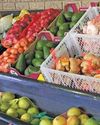
Final fresh produce inquiry pins low level of transformation on farming environment
The Competition Commission released its final report on the Fresh Produce Market Inquiry in mid-January, maintaining that transformation in the industry was being impeded by a lack of support for emerging farmers.
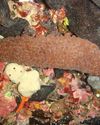
Illegal fishing in Australia reveals market gap for farmed sea cucumber
Illegal fishing practices in Australia have revealed a large market opportunity for sea cucumber farming.

An introduction to the Ford Ranger Tremor
In December 2024, the CAR magazine team received the Ford Ranger Tremor to accompany them through the festive season and into the new year. Oliver Keohane looks at what the Tremor is all about.
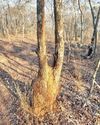
A farmer's experience with bush encroachment
Farmer David Addenbrooke has worked in the Zimbabwean beef industry for around four decades. Here, he relates his experience with bush encroachment and offers farmers some advice on battling this scourge.
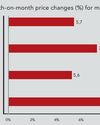
Good rains boost SA's summer grain crop prospects
This week, Absa AgriBusiness analyses several market dynamics and shares its expectations for local grain and oilseed prices over the coming months.
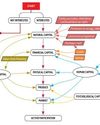
A self-help tool for getting young people engaged in agriculture
The active engagement of the youth in agriculture is pivotal to the sustainability and growth of the sector. Empowering them with the necessary support is key to nurturing future farmers who are equipped to overcome future challenges like the effects of climate change.Dr Primrose Madende, researcher at the Department of Agricultural Economics at the University of the Free State
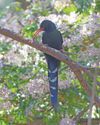
Rallying to the cackle of this raucous bird
The gregarious and territorial Green Wood-hoopoe, also known as the Red-billed Wood-hoopoe, is extremely vocal and is often heard before it is seen. And for very good reason,

SA coffee lovers can expect price increase
South African coffee prices are expected to spike sharply in the foreseeable future because of failed crops in the country’s main importing countries: Brazil and Vietnam.
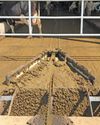
Paving the way for a greener dairy industry
The dairy industry is often criticised for its environmental impact, but a new innovation called DESTiny aims to empower farmers to take control of their carbon footprints. Riana Reinecke, the tool's developer, explained to Glenneis Kriel how it works and how farmers can benefit from it.